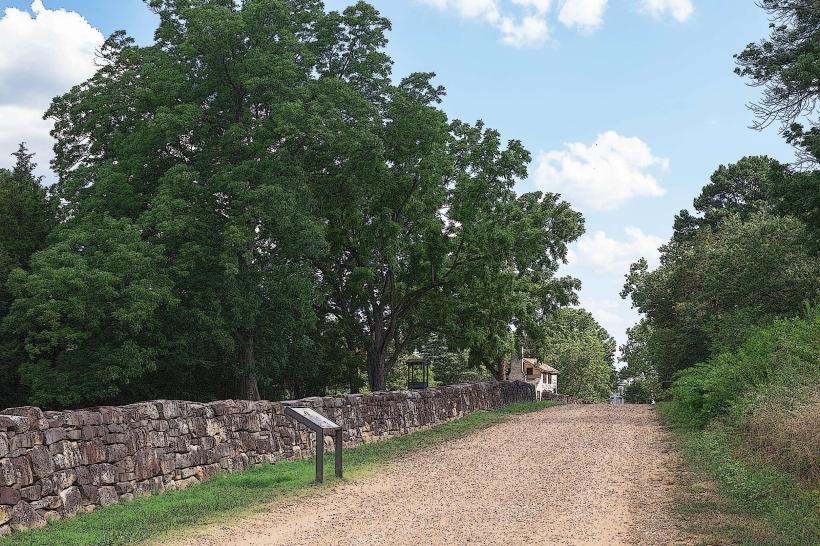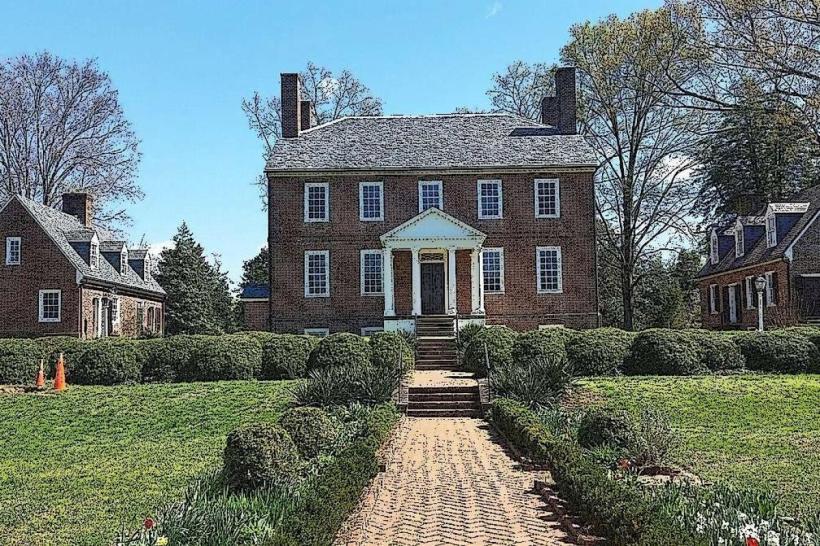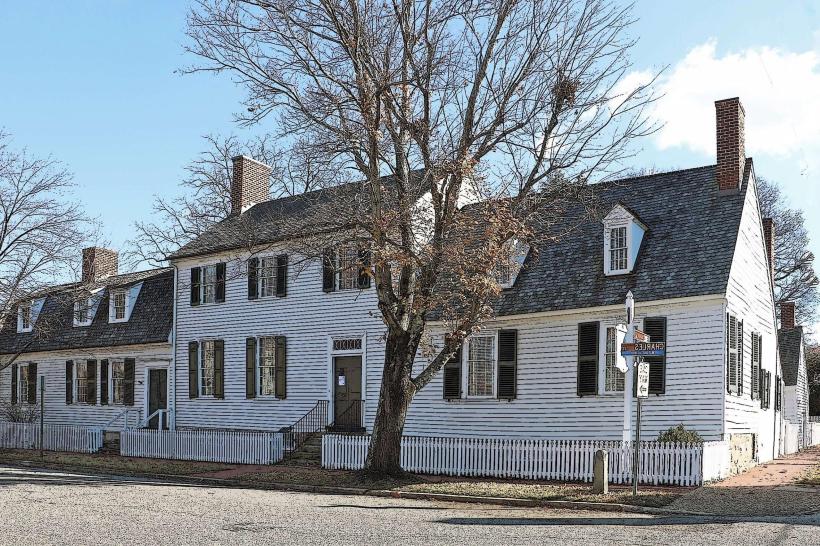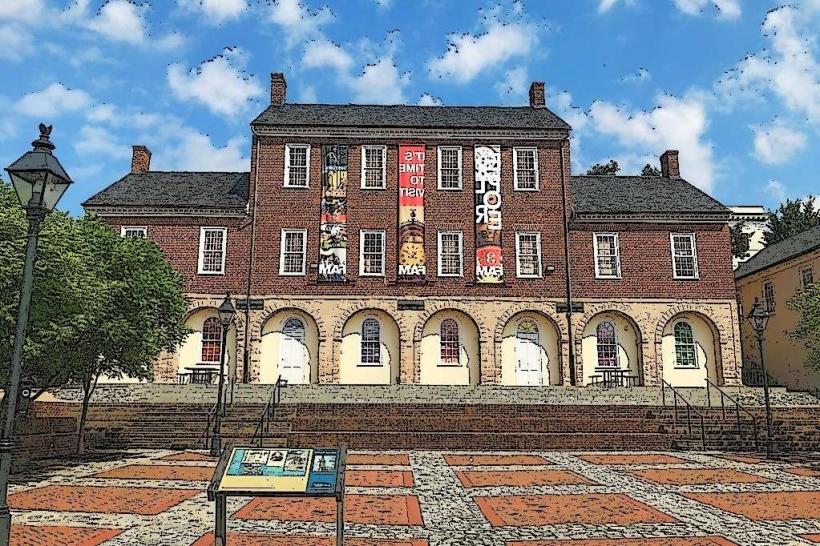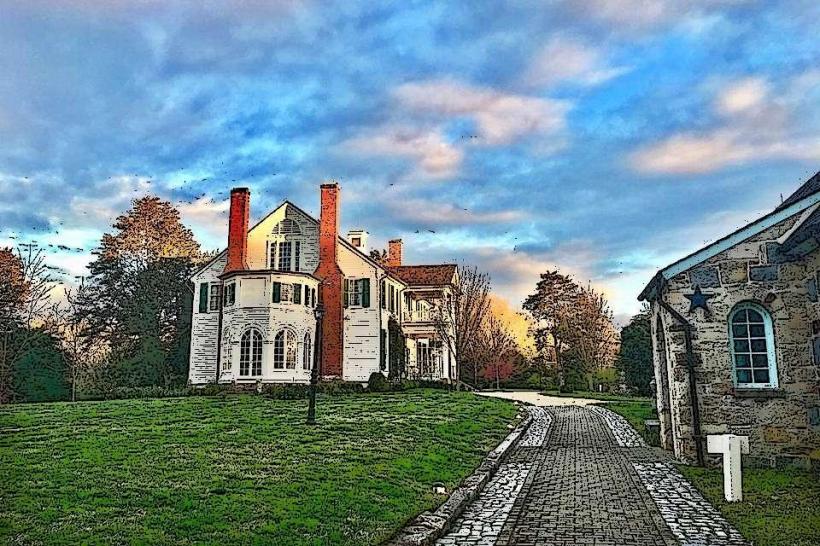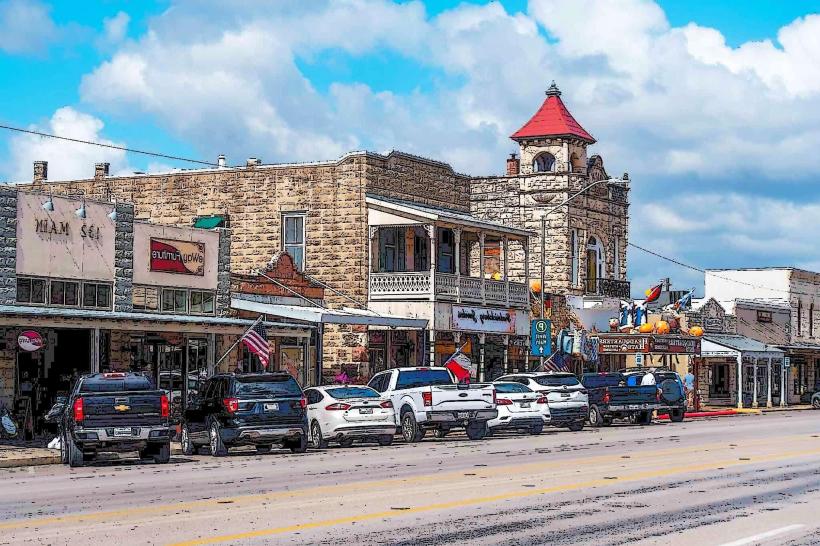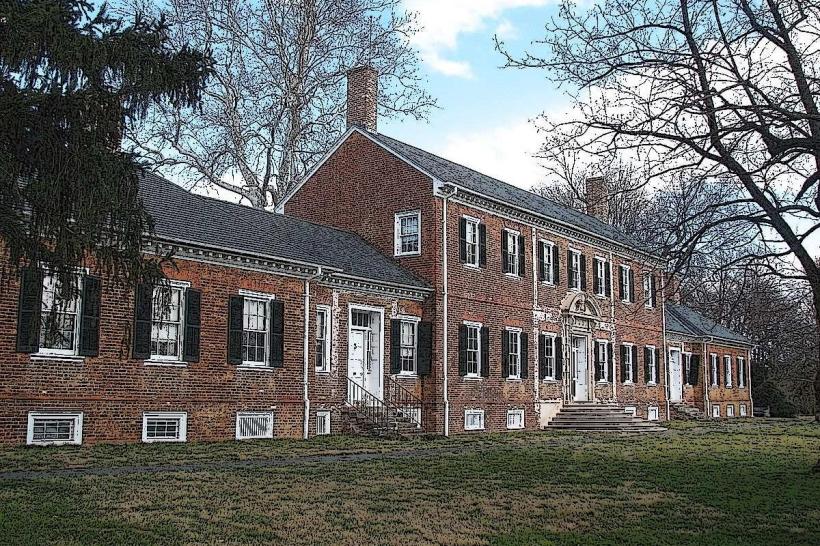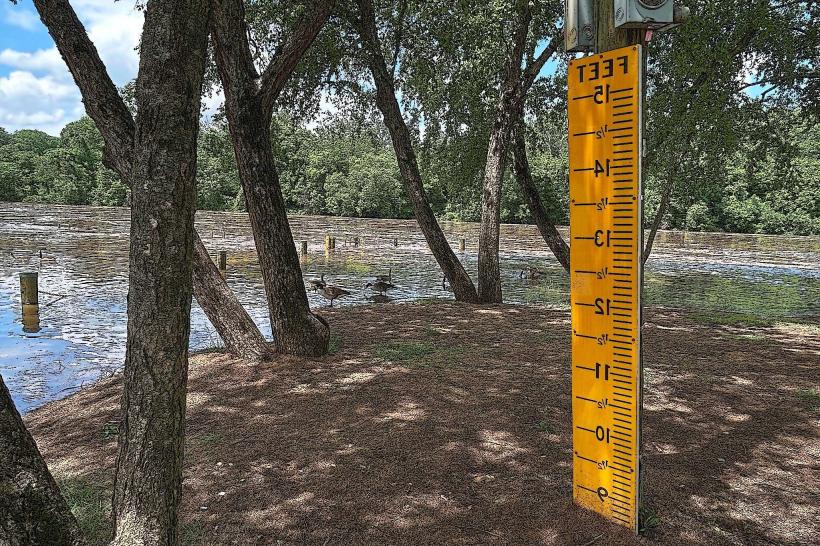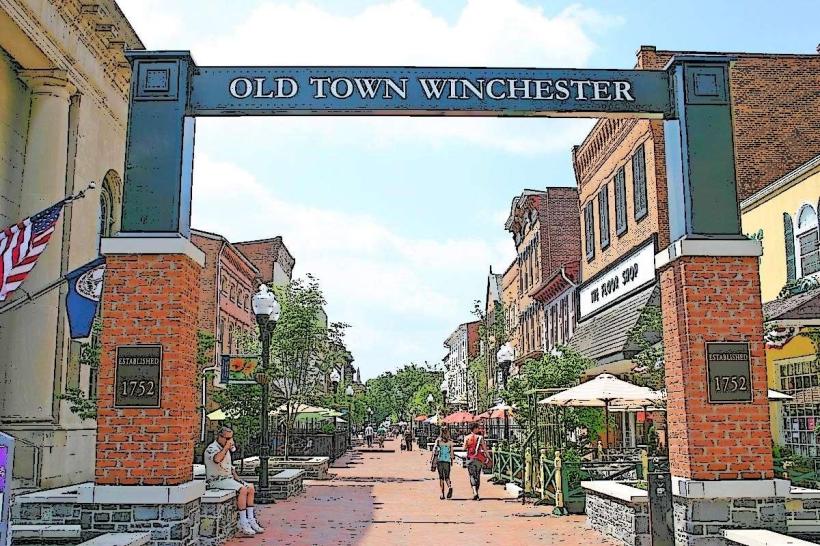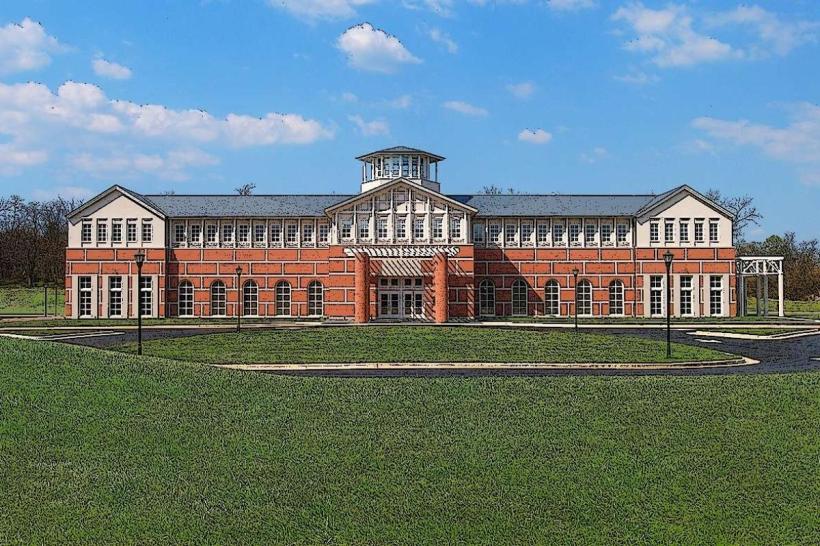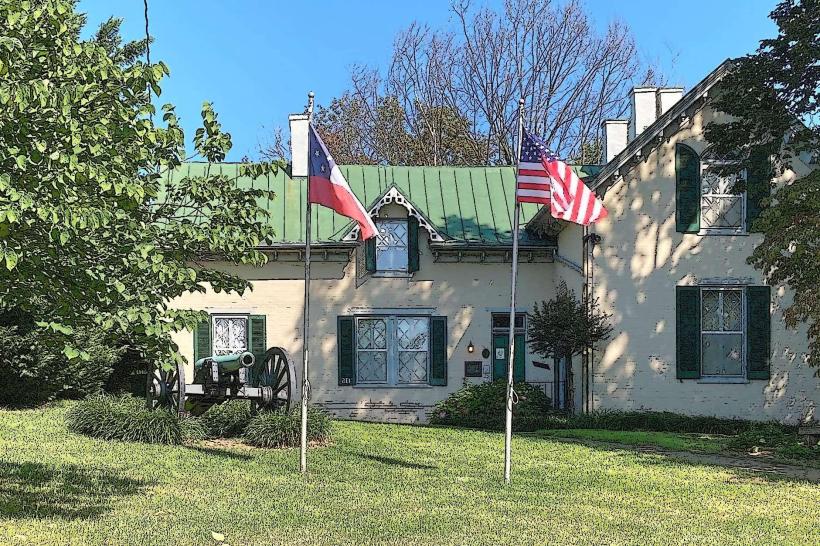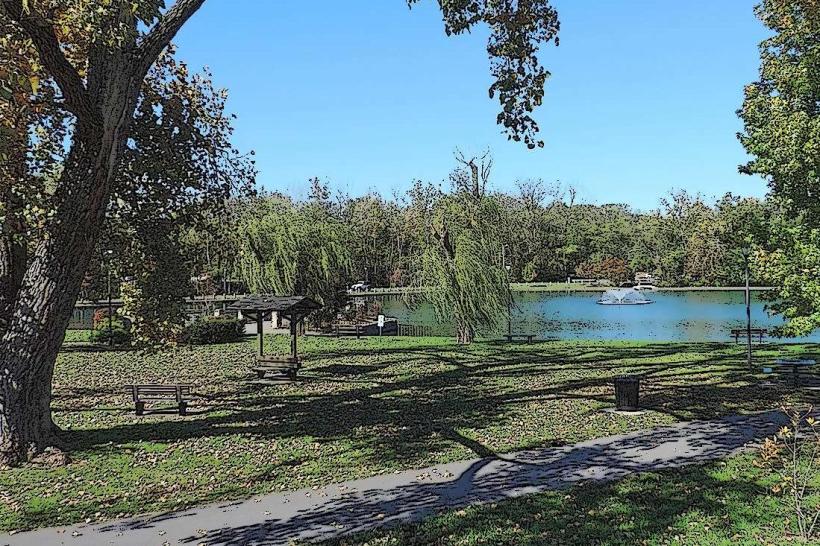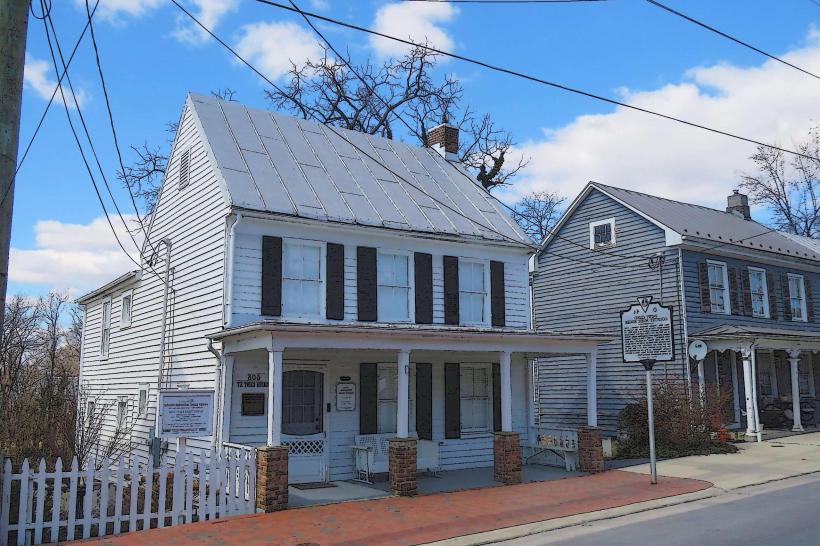Information
Landmark: Abram’s DelightCity: Fredericksburg
Country: USA Virginia
Continent: North America
Abram’s Delight, Fredericksburg, USA Virginia, North America
Abram’s Delight is the oldest surviving house in Winchester, Virginia, and a deeply significant historic site that captures over two centuries of the Shenandoah Valley’s early Quaker settlement, frontier development, domestic life, and evolving architectural traditions. Constructed in 1754, this limestone house was the centerpiece of a vast estate that reflected the ambitions and values of one of Winchester’s founding families, the Hollingsworths.
1. Founding and Early History
The story of Abram’s Delight begins in 1728, when Abraham Hollingsworth, a Pennsylvania Quaker of Scotch-Irish descent, journeyed south to the Shenandoah Valley in search of new land. According to local tradition, upon finding a beautiful, spring-fed tract of land near what would become Winchester, Abraham exclaimed that it was “a delight to behold”-thus the land became known as Abram’s Delight.
Abraham received official land grants totaling 582 acres, which he acquired partly through negotiation with local Shawnee, reportedly trading a cow, a calf, and a piece of red cloth. This act reflects early interactions between European settlers and Native Americans in the region. Abraham built a log cabin near the spring, raised a family, and planted the seeds of a homestead that would remain in the family for generations.
2. Construction of the Stone House (1754)
After Abraham’s death in 1748, his son Isaac Hollingsworth, a devout Quaker minister, commissioned the construction of a more permanent home. In 1754, Isaac hired master stonemason Simon Taylor to build what is now the current stone house.
Architectural Details:
Style: Colonial-era stone farmhouse with Georgian symmetry.
Materials: Locally quarried limestone, walls over 22 inches thick.
Layout: Two rooms on each floor, flanking a central hall.
Interior: Simple but refined wood paneling, exposed beams, stone hearths, and narrow staircases.
The home reflects Quaker simplicity: it is unornamented, practical, and structurally strong. It served both as a residence and occasionally as a Quaker meeting space, with men gathering in the front parlor and women in the dining room.
3. Expansion and Family Life
Over the decades, the house underwent multiple expansions to accommodate the growing family and evolving tastes:
Circa 1800: A two-story west wing and dormers were added when Jonah Hollingsworth, Isaac’s grandson, inherited the house. Jonah had 13 children, and the expansion was essential for such a large family.
Mid-1800s: Under David Hollingsworth, Jonah’s son, the house was remodeled with more contemporary influences. A Greek Revival stairway replaced the original winding one, and rooms were updated with more fashionable trim and décor.
David also landscaped the grounds, built a summer house, and created a small lake near the spring. These additions reflected rising affluence and a departure from the austere simplicity of earlier generations.
4. The Hollingsworth Mill and Estate
In 1833, David Hollingsworth also built the Hollingsworth Mill nearby. This mill processed grain for local farmers and became a hub of agricultural activity in the region. The spring that attracted Abraham remained essential, supplying water to both the home and the mill.
The mill building still stands today and has been repurposed as:
The Abram’s Delight Visitor Center
A gift shop
A museum space for rotating exhibits about local history and industry
This connection between home, spring, and mill reflects the self-sustaining nature of early Virginian estates.
5. Decline and Preservation
By the early 20th century, the estate fell into disuse. After Annie Hollingsworth, the last family descendant living in the house, moved out, it remained empty and vulnerable to decay. In 1943, the City of Winchester purchased the property, partly to protect the spring, which remained an important water source.
Recognizing its historic value, the Winchester-Frederick County Historical Society undertook a nine-year restoration project. The house was opened to the public as a museum in 1961, showcasing original furnishings, domestic artifacts, and the legacy of the Hollingsworth family.
In 1967, a circa-1780 log cabin was relocated to the property to help illustrate what early frontier homes looked like during Abraham Hollingsworth’s time.
6. Exhibits and Museum Experience
Today, Abram’s Delight operates as a seasonal museum and historic site offering a vivid interpretation of colonial and 19th-century life. Key features include:
A. The Stone House Tour
Period-accurate rooms: Dining room, parlor, bedrooms, and kitchen arranged with authentic 18th and 19th-century furnishings.
Artifacts: Quilts, farm tools, household goods, and religious materials reflecting Quaker life.
Interpretive panels: Detailing family history, architectural evolution, and social life in colonial Winchester.
B. The Log Cabin
A stark contrast to the stone house, it showcases frontier survival techniques, cooking tools, and furnishings typical of the 18th century.
Used to educate visitors-especially students-on the challenges faced by early settlers.
C. The Hollingsworth Mill Visitor Center
Rotating exhibits on industrial history, genealogy, and Shenandoah Valley culture.
Gift shop with historical books, crafts, and local souvenirs.
7. Folklore and Ghost Stories
Abram’s Delight is one of the most legendarily haunted sites in the region:
Visitors and staff have reported sightings of a Quaker man in old-fashioned clothing, believed to be Abraham or Isaac Hollingsworth.
Others claim to have seen Mary Hollingsworth, David’s daughter, who lived there until 1917. Her ghost is said to cause lights to flicker, objects to move, and a cold presence to be felt in her former bedroom.
These legends are especially celebrated during Candlelight Tours and special seasonal events, adding a layer of mystique to the home’s historical charm.
8. Visitor Information
Open Seasonally: April 1 – October 31
Hours:
Monday–Saturday: 10:00 AM – 4:00 PM
Sunday: 12:00 PM – 4:00 PM
Admission:
Adults: $6
Seniors: $5
Students (K–12): $3
Children under 6: Free
Location:
1340 South Pleasant Valley Road, Winchester, VA 22601
Group tours and school visits can be arranged with the Winchester-Frederick County Historical Society.
9. Cultural and Educational Importance
Abram’s Delight is not simply a relic of the past but a living classroom. It connects visitors to:
The religious tolerance and migration of early Quakers
The challenges of frontier life
The transformation from subsistence farming to a more prosperous agricultural estate
Gender roles, craftsmanship, and family dynamics in early American society
Its preservation offers a rare chance to walk through a home that has witnessed colonial times, the Revolutionary War, the Civil War, and the modern age-all under one roof.
In conclusion, Abram’s Delight is a uniquely intimate, authentic, and deeply historical site that reveals the cultural fabric of early Winchester and the Shenandoah Valley. From its colonial foundations to its role as a modern museum, it invites visitors into the daily life, struggles, and triumphs of the families who helped build Virginia.

